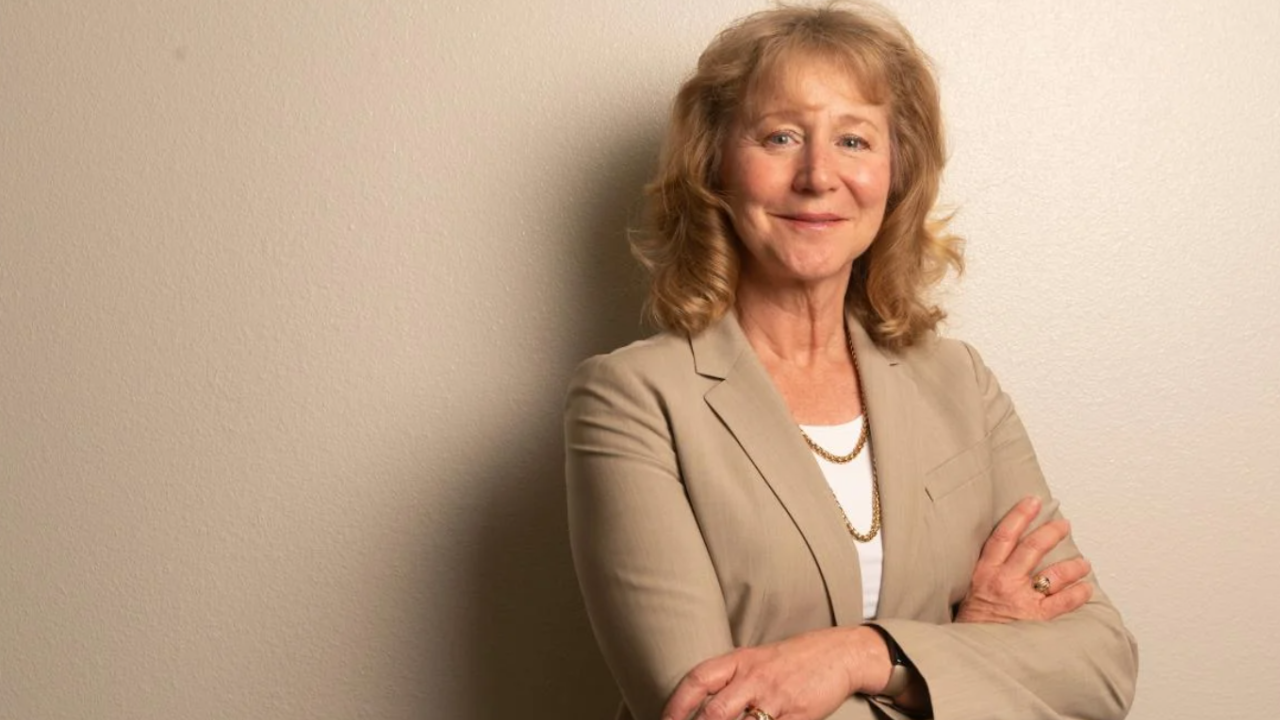
Modeling Better Futures
Jennifer Sinclair Curtis on Supporting Tomorrow’s Chemical Engineers
Jennifer Sinclair Curtis was already well-established in her career in engineering when she arrived at UC Davis in 2015, yet she was able to take her work to even greater heights as the new dean of the College of Engineering.
“After the interview I knew I wanted this job,” Curtis said. “The spirit of the campus and faculty both shared “a very creative kind of can-do spirit, very no-nonsense. That's the vibe I got.”
That same year, Curtis was awarded the prestigious American Institute of Chemical Engineers’ F.J. & Dorothy Van Antwerpen Award, which recognizes outstanding achievements in chemical engineering. In 2023, Curtis was inducted into the National Academy of Engineering. Curtis worked with industry partners to take their in-house codes and visualize them into “multi-phase particle flow simulations.”
“These simulation codes need more capabilities. We developed physical models that describe the behavioral particles, how they interact with each other,” Curtis explained. “Models provide more capabilities to treat and simulate different systems and different conditions of fluid and particle dynamics.”
These models and simulations have since been adapted and incorporated into fluid dynamics software packages across multiple industries.
Curtis is also a fellow of the American Physical Society, American Society for Engineering Education, American Institute of Chemical Engineers and American Association for the Advancement of Science, and has served on numerous national advisory boards and committees.
“It's been a very intellectually fulfilling career,” Curtis said. “I'm extremely grateful to UC Davis because some of the key things of my career occurred during my time here.”
Mentors spark interest
Originally from Ohio, Curtis is the product of parents who were “not STEM people at all,” she said, referring to the fields of science, technology, engineering and math. Instead, she discovered engineering through high school.
“A high school guidance counselor said to me, ‘I think you should consider chemical engineering,’ which was pretty progressive of him,” Curtis recalled. She told her parents the news and they too were unaware of what chemical engineering entailed. Still, Curtis followed her counselor’s advice.
“He was totally right – I loved the courses,” she said. “It was just a perfect fit.”
Curtis earned her undergraduate degree from Purdue University and her master’s and Ph.D. degrees from Princeton University, all in chemical engineering. Her first year, she met a professor who Curtis described as “a proactive mentor who answered questions I didn't even know I had.”
“That's how I started doing research,” she explained, “even as an undergraduate.”
Making space for innovation
After fulfilling the roles of department chair and associate dean, Curtis served as the first female dean of the College of Engineering at UC Davis from 2015 through December 2020.
“As an administrator, a lot of people come with different ideas and there's limited resources,” Curtis explained. “You have to put your energy and seed money into what you think is going to have the biggest impact for the students and bring the biggest visibility to UC Davis.”
She cited the launch of the Engineering Student Design Center as “a major initiative” for the college. The center provides manufacturing education, resources and support for students of every engineering discipline, faculty and staff. “That concept was developed and the majority of the funds were raised while I was dean.”
The goal was to help retain engineering majors and support them throughout a challenging academic program.
“When we looked at the data of the [student] retention, it was not good – and not good in all groups,” Curtis said.
A key goal of the center was “to give students a vision for what the career of engineering is as early as possible” by showing students “the whole engineering design process – come up with an idea, do a prototype, test it out,” Curtis explained.
“I think you have to have a context for what this career and what the vision for this career is going to be,” Curtis said, “and that's what's going to sustain you.”
Curtis also created a career development course, taught by alumni and designed to teach student’s professional presentation and development skills. One hundred thirty students were enrolled in the course each quarter at the time Curtis stepped down as dean.
“When I looked at the enrollment of that course, most of the students were from these at-risk groups,” she explained, underscoring the need for such centers and courses.
Within a six-year period, retention within the college of engineering increased by 20%, according to Curtis. “That’s huge! It made a big difference,” she said.
This speaks to the campus spirit that initially attracted Curtis to Davis.
“Davis has a lot of accolades that should be noticed,” Curtis said. “People will go out of their way to be helpful.”
